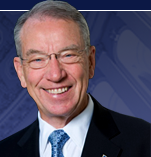Q: Why do we elect the President through the electoral college?
A: The U.S. Constitution sets forth the requirements for election of the President and Vice President in Article II, Section 1, as amended in 1804 by the 12th amendment. It authorizes each state to appoint, by whatever means the legislature chooses, a number of electors equal to the combined total of its number of members of the Senate and House of Representatives. Today, there are 538, with three electors added for the District of Columbia.
Q: How exactly does it work?
A: When voters cast a vote on election day, they are actually voting for the slate of electors pledged to candidates. The entire slate of electors winning the most popular votes in the state is elected, a practice known as winner-take-all or the general ticket system. Maine and Nebraska use an alternative plan that awards two electors to the popular vote winners statewide and one to the popular vote winners in each congressional district. Electors assemble in their respective states on the Monday after the second Wednesday in December and are expected to vote for the candidates they represent. Separate ballots are cast for President and Vice President, after which the electoral college ceases to exist until the next presidential election. State electoral vote results are reported to Congress and declared at a joint session of Congress typically held on January 6. A majority of electoral votes – 270 of 538 – is required to win.
Q: Would you support changing the system?
A: Past proposals for change by constitutional amendment have included various reform options and direct popular election, eliminating the electoral college system, but no substantive action on this issue has been taken in Congress for more than 20 years. It’s important to keep in mind that a country’s voting system is a fundamental part of its constitutional framework and has a profound effect on civic life in a democracy. One significant aspect of the current system is that it recognizes the importance of the individual states, which is so central to our Constitution. We are the United States of America, not the Republic of America. It’s important that smaller states like Iowa are not left out of the process, and I would not like to see any change that would cause Iowa to play a less significant role in the election of our President. The electoral college prevents candidates from racking up votes in just a few high population states and ignoring the rest of the country. It also ensures that any potential fraud is kept within a state and wouldn’t impact other states’ electors, so Iowans couldn’t have their votes diluted by fraudulent votes in other states. State legislatures have the right at any time to modify how they select electors. Otherwise, no change should be made without a constitutional amendment.




